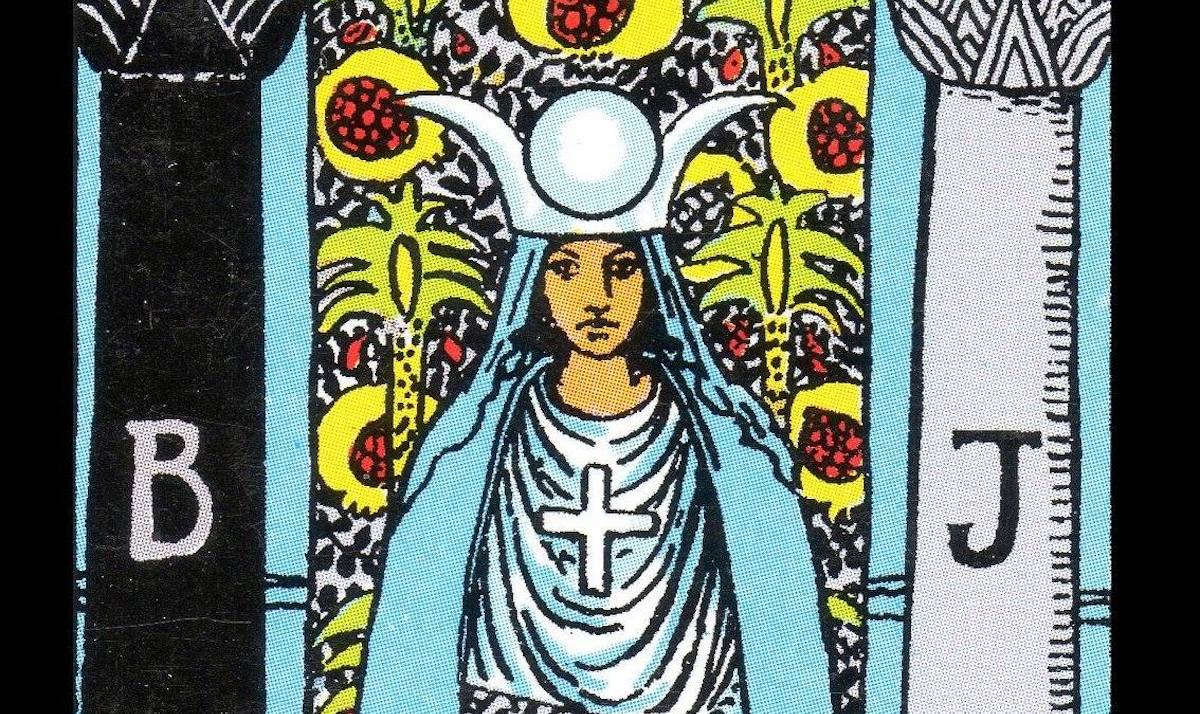Celebrating Rachel Pollack: Comics Writer, Novelist, and Tarot Legend

My first guide to the tarot was very basic: a section in a longer book about witchcraft that had a list of brief card meanings. The 3 of Swords meant heartbreak, the King of Pentacles meant a rich man, the Empress meant fertility. As a teenager who loved the cards but didn’t quite grok how they worked, I felt like I had to memorize someone else’s 78 interpretations, and even after I discovered more holistic systems, I thought that each card’s meaning was static. The art seemed almost superfluous sometimes, like a set of index cards with keywords written on them would be just as effective as an actual deck.
Then I discovered Rachel Pollack.
Pollack was, quite simply, the authority on tarot—especially the rich history and symbolism of the famous Smith-Waite deck. Recently, Neil Gaiman announced that Pollack was nearing the end of her life. On Friday, Pollack’s wife announced that she had passed away.
If you love tarot, fantasy, or comics, then Rachel Pollack had a tremendous impact on your life. Here’s why.
Rachel Pollack’s wisdom on the tarot
In 2002’s A Walk through the Forest of Souls: a Tarot Journey to Spiritual Awakening (recently reissued by Weiser Books), Pollack explored the tarot not as a prescriptive tool for predicting the future, but as a way of opening up questions and possibilities. “To learn to play seriously is one of the great secrets of spiritual exploration,” she wrote, noting the tarot’s origins as a card game. She managed to effortlessly stitch together all the tarot’s far-flung influences, from Egyptian myth to the Kabbalah, while distilling the essentials into a divination practice that’s easy for readers to find their way into.
Pollack also encouraged readers to be open-minded about tarot instead of dogmatic or dismissive, writing:
Maybe a Tarot reading helps us glimpse a slightly larger part of the web [of time] than we would otherwise recognize. At any moment the shifting energy of past-present-future creates a vast pattern, one that ultimately contains all existence …. [the cards] do not control or show an unchangeable fate. Instead, they reveal possibilities.
Pollack’s most famous book on the tarot is Seventy-Eight Degrees of Wisdom: a Tarot Journey to Self-Awareness. If you’re looking for a guide to each individual card’s meaning, this book is the gold standard. Pollack’s eye for detail is unmatched, and she found subtle, often tiny gems in Pamela Colman Smith’s artwork that reveal startling layers of meaning. I still remember my moment of astonishment when I finally noticed, thanks to Pollack’s insights, that the High Priestess isn’t sitting in a hidden chamber, but rather in front of a thin curtain with an open landscape behind it. That understanding fundamentally changed the way I read the High Priestess.
Pollack didn’t just study the tarot, though. She created two decks of her own: the Shining Tribe Tarot, inspired by prehistoric art, and the Jewish-themed Raziel Tarot (in fact, Pollack wove her Jewish heritage into much of her work). She also created an oracle deck, the Burning Serpent Oracle.
But Pollack’s immeasurable contributions to the art of cartomancy were only part of her long career as an artist.
Rachel Pollack’s comics and novels
In addition to being a mystic, Pollack was also a prolific writer.
In 1993, Pollack started writing for Doom Patrol, a DC Vertigo comic about a group of superpowered misfits similar to Marvel’s X-Men. During Pollack’s run, Doom Patrol explored Jewish mysticism, queer themes, and more. As a trans woman, Pollack created one of the first—and, some say, the best—trans superheroes in comics: Kate Godwin, a.k.a. Coagula.
Last July, Pollack told Polygon that Kate, who has the ability to coagulate or dissolve any substance, was “a chance to introduce a trans character who would be within the theme of the series.” During her time writing Doom Patrol, Pollack explored the trans experience through Kate’s character, including finding connection through a found family, and facing rejection because of her identity.
Pollack was also an accomplished science fiction and fantasy writer. Her books include Unquenchable Fire, which won the Arthur C. Clarke Award in 1989; Temporary Agency, which won the 1995 Nebula Award; and Godmother Night, which won the World Fantasy Award and the Lambda Award for Transgender Literature in 1997. Pollack was one of those rare writers who’s able to seamlessly integrate her spirituality into her storytelling, and she was one of my inspirations for combining my love of witchcraft and esotericism with my passion for speculative fiction.
“Many stories, many worlds, many wonders”
In a 2009 interview with the publisher Llewellyn about her work with the tarot, Pollack said, “I found myself personally surprised by how much power I’ve found in the idea that reality is not what we think it is, and that we live in exile from our true selves—and that the Tarot forms a blueprint of our return.”
You can even take her words one step further. Storytelling, whether it’s through a tarot spread or a comic book or a novel, can form that blueprint, and Pollack was a master storyteller. She was the kind of artist and wise woman who comes along once in a generation, and I feel lucky to have access to her books. In her Llewellyn interview, she said that “the Tarot contains many stories, many worlds, many wonders.” So did she.
(featured image: Rider Company, public domain)
Have a tip we should know? [email protected]
